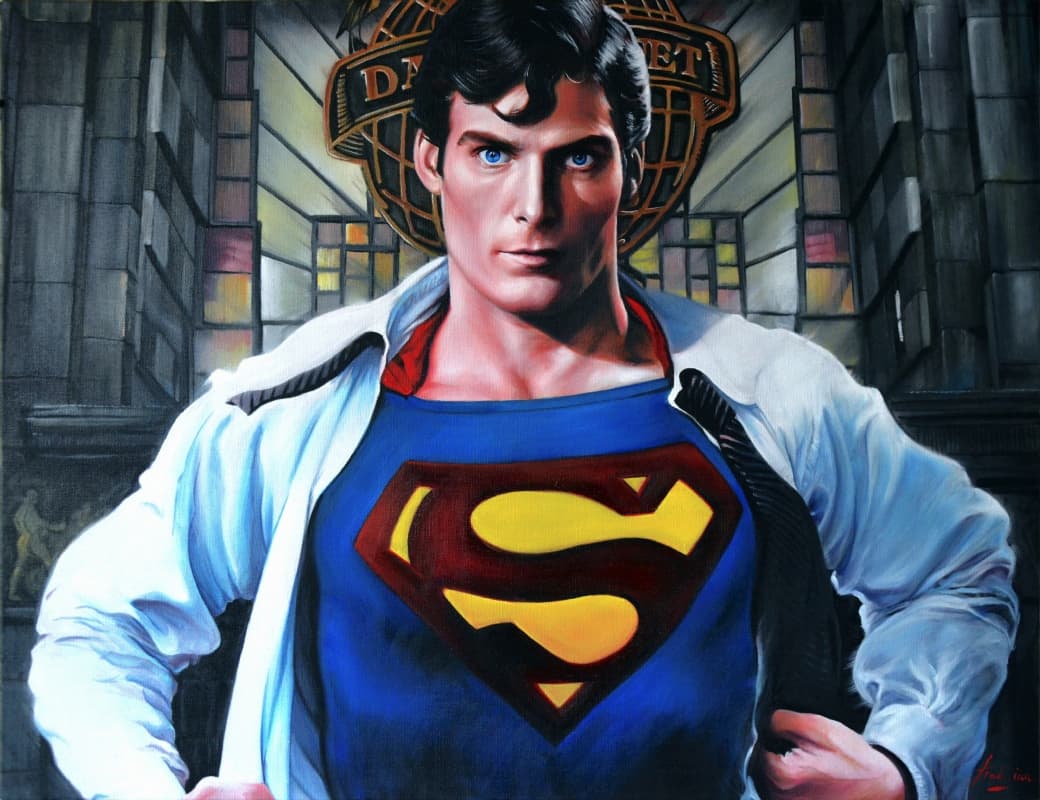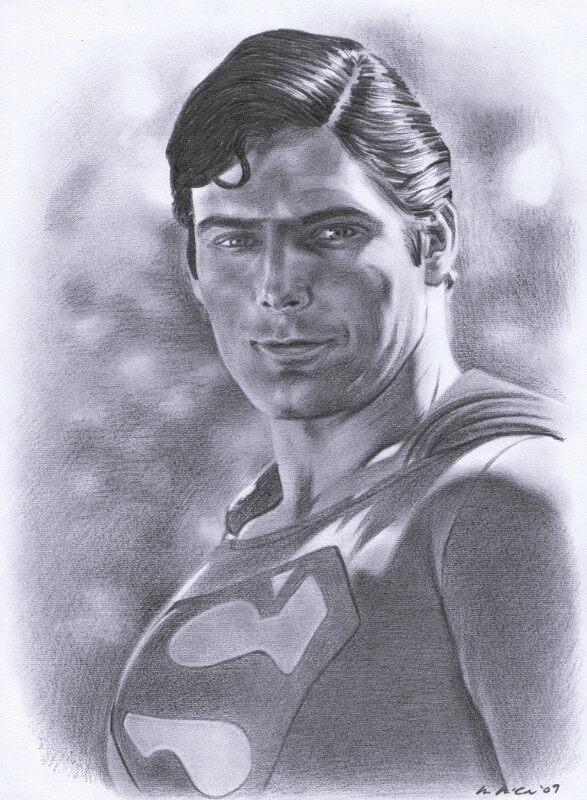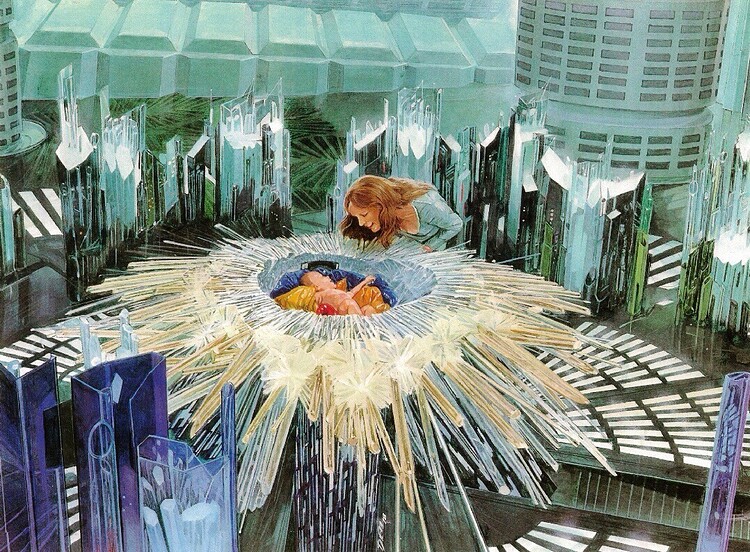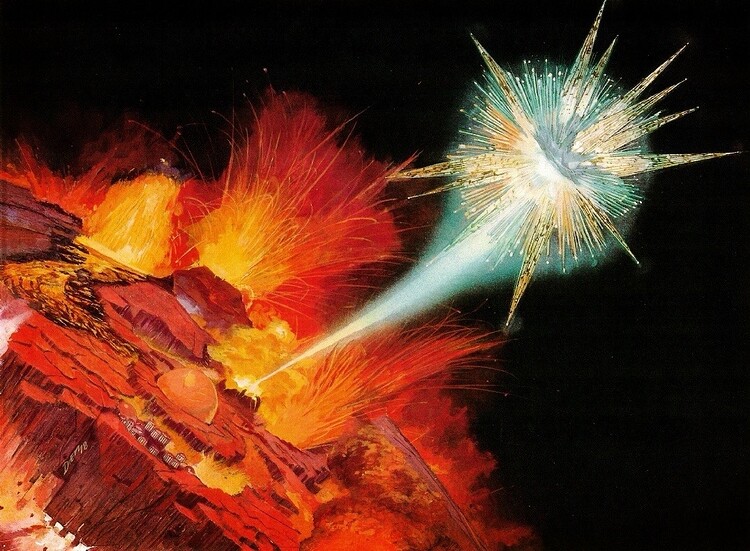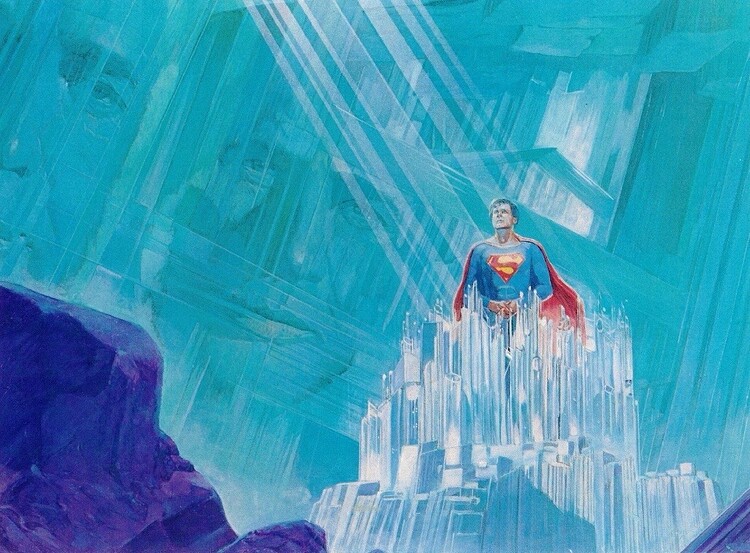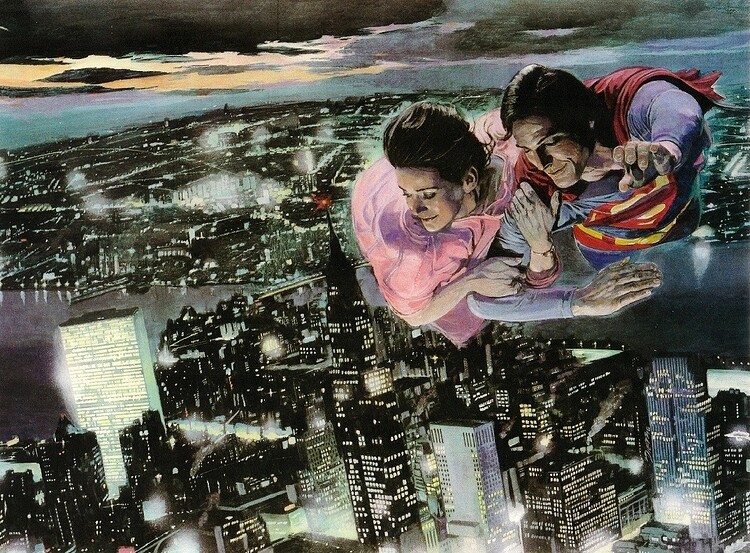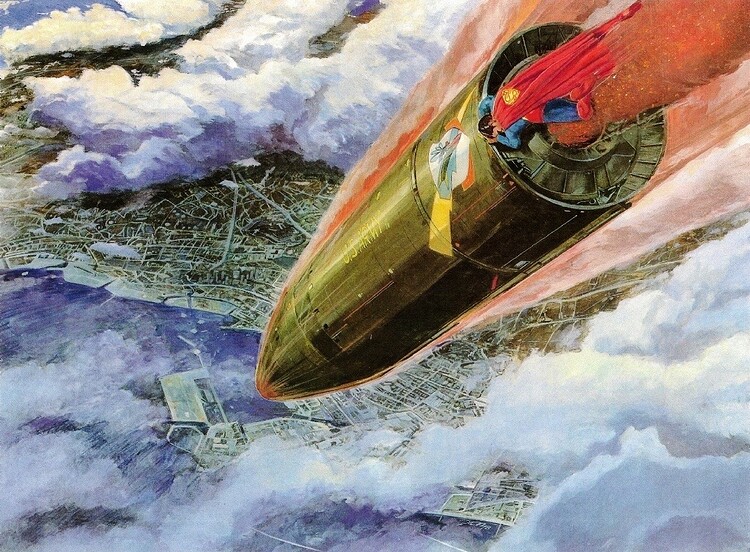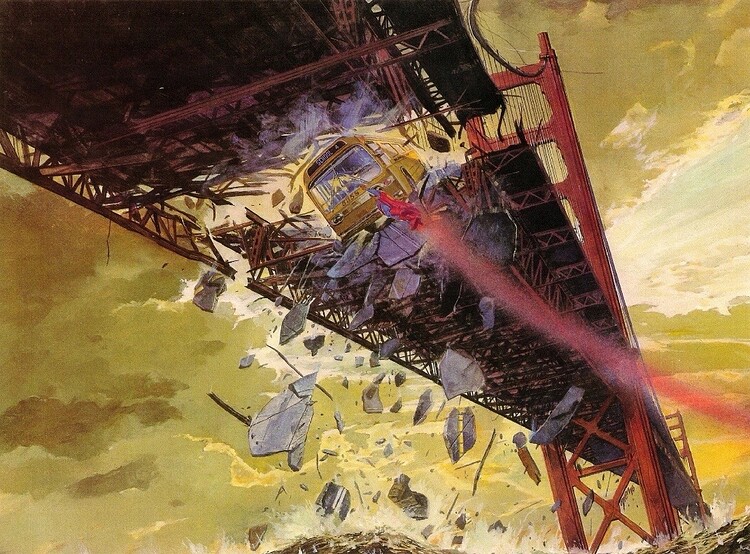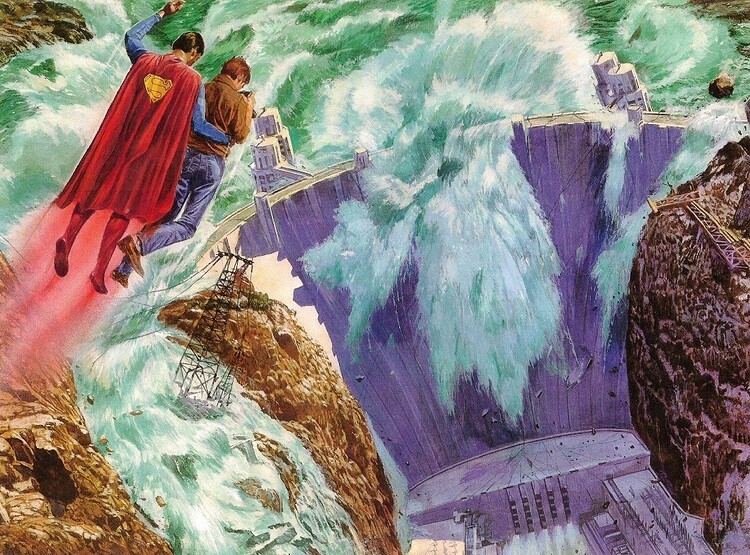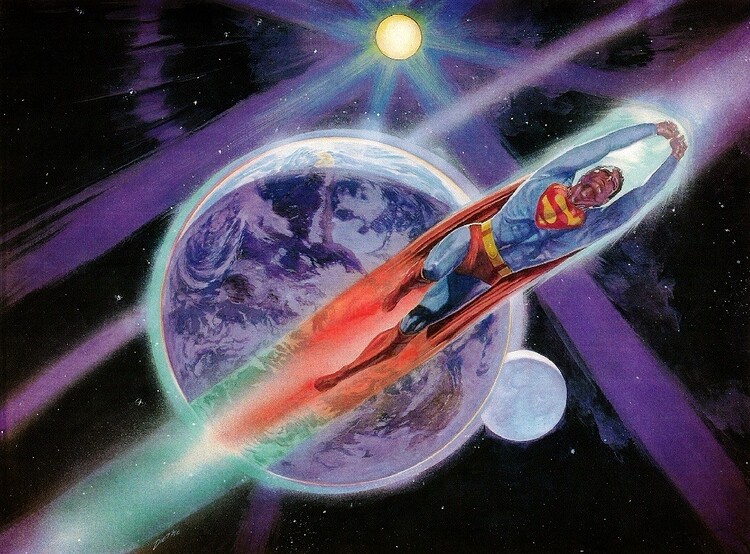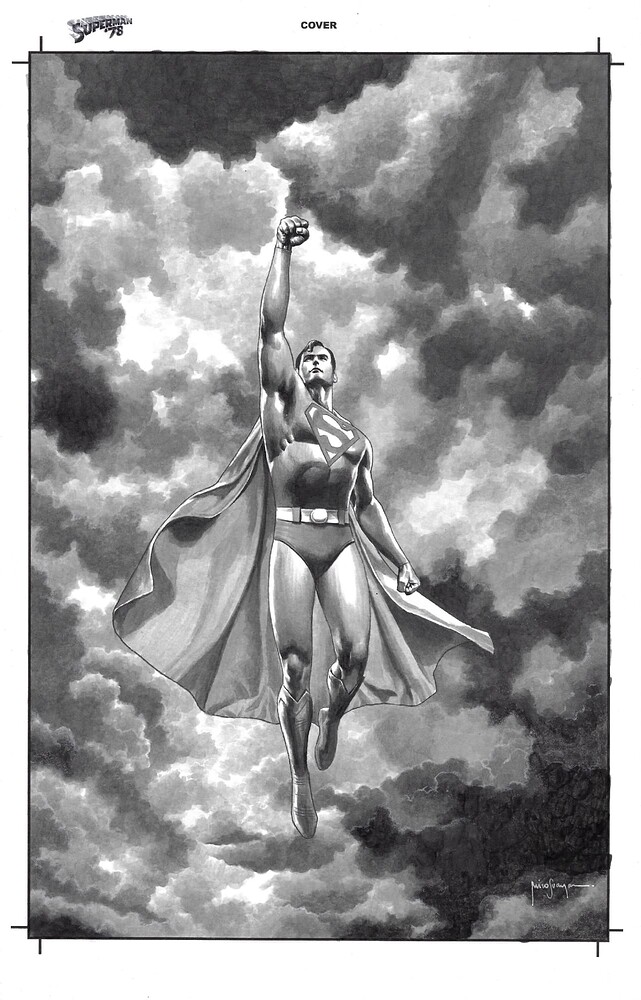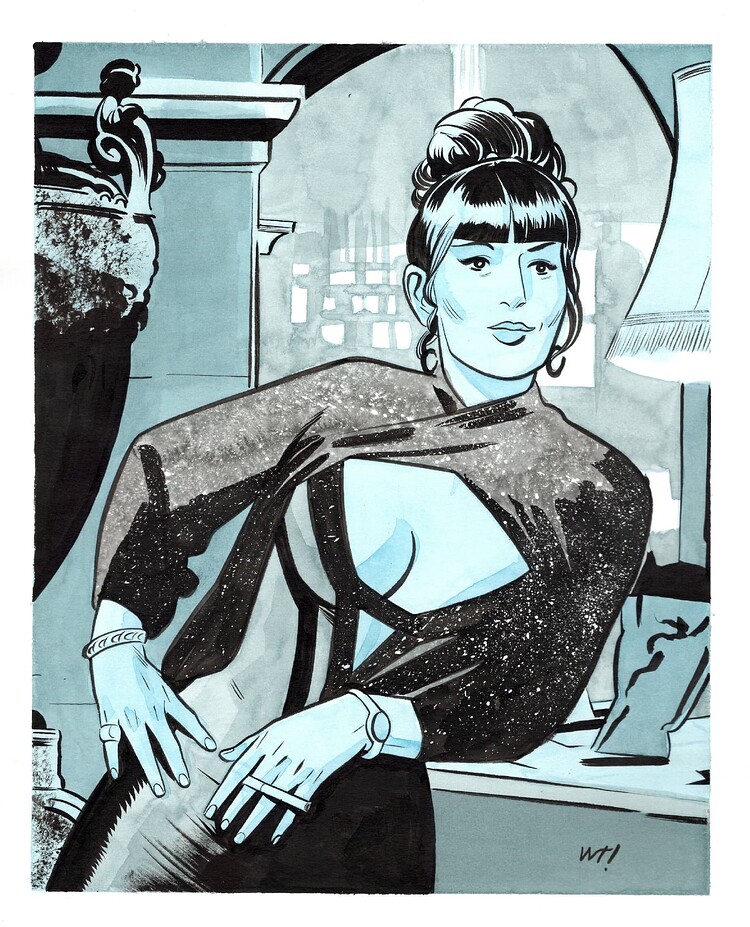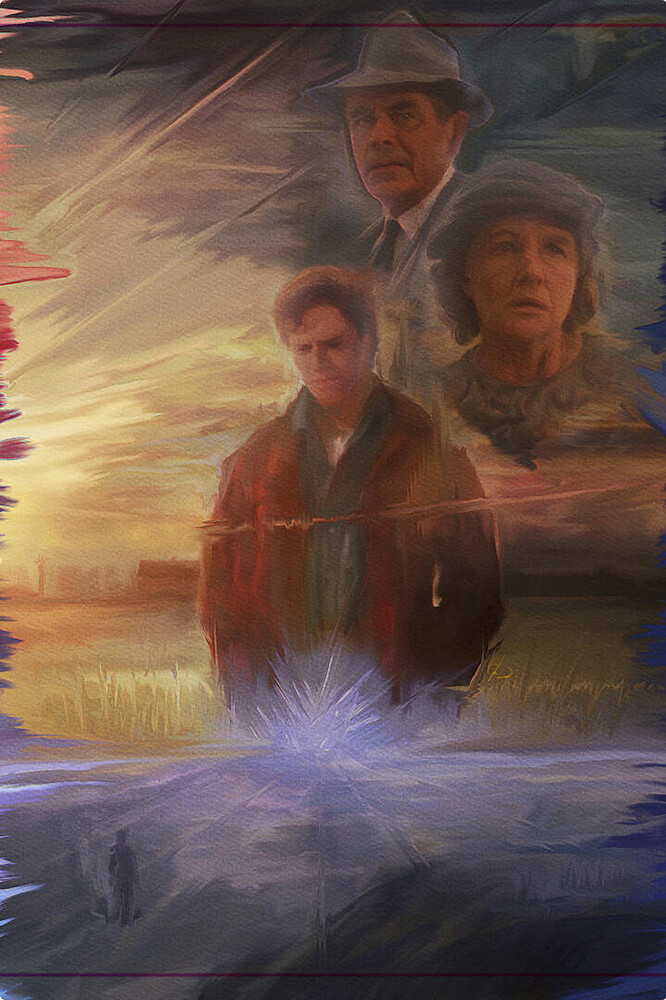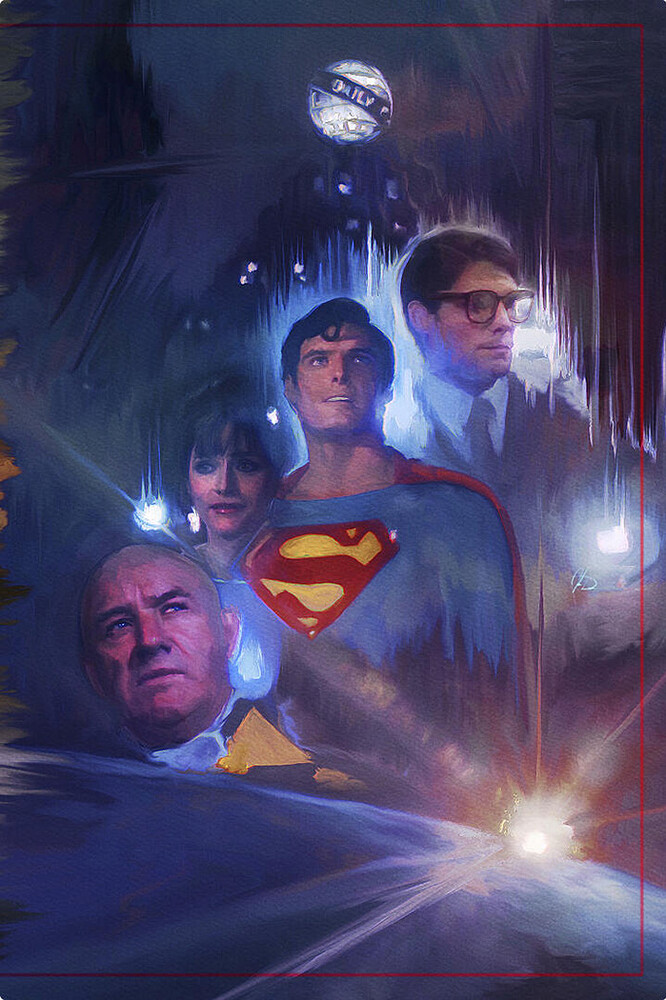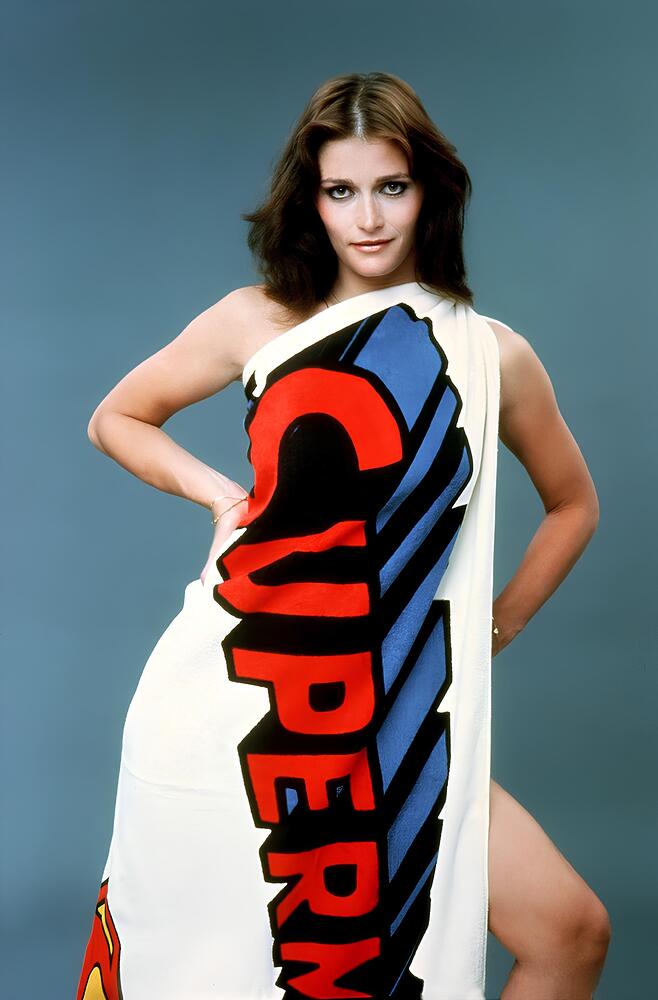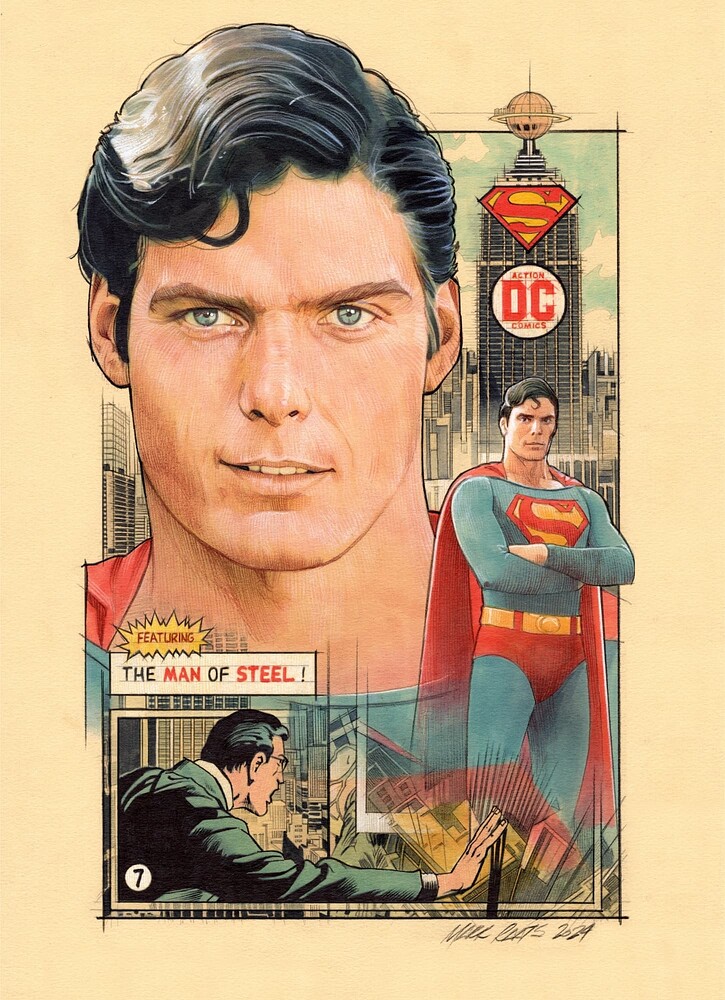le seul vrai et unique superman.
C’est pas Clark ???
- « Margot Kidder is Lois Lane. I’ll be honest, when I was a kid, I didn’t like Margot Kidder in the role. She came across as too harsh, too shrill, too nasty. She was unappealing to me. My ideal Lois Lane in those days was probably Noel Neill from the TV series, the big sister Lois, the pleasant (though hapless) Lois. But in the intervening years, I’ve come to really appreciate Kidder’s performance and the tricky tightrope she had to walk. And she’s a great Lois Lane from the perspective of characterizing a late 1970s woman who has become jaded and cynical, who lives for her work and who knows how hard and tough you need to be to survive in a cruel city. It’s her come-around, her wonder and acceptance of the miracle of this weird flying man who drops down on her balcony and tells his with the utmost sincerity that he’s there to fight for Truth, Justice and the American Way that makes it all work. Margot Kidder’s Lois Lane is us, the audience, the people who, by the later 1970s, have seen too much, Watergate and the Vietnam War and several high-profile assassinations and so on and so on to believe in selflessness and goodness for the sake of goodness. In the relationship between Superman and Lois, the film is able to make Superman’s virtue not only appealing but like a panacea for the soul. Yes, this is all fantasy, the film says, but what if it wasn’t? What if there really could be a man like this? I also love the fact that, for all that Superman has to save her once or twice during the course of this film, at no time is she a hapless idiot. Every time she is in jeopardy, it’s not because she’s done something foolish or idiotic, she just simply happens to be in the wrong place at the wrong time. Kidder’s Lois Lane isn’t a damsel in distress, she’s a professional, with a professional’s skill set. You can understand how she got to where she is before Superman comes to town. »
- « Lex Luthor is a Bond villain. It seems as though the part of the Superman set-up that the producers had the toughest time justifying was the notion of villains for Superman to fight. And that’s understandable–evil in the real world is a lot less direct than in the world of comic books. At the time in the comics, Luthor had grown into a nuanced character largely due to the efforts of writer Elliot S! Maggin. But he was still absurd from a real world perspective, a genius who had a grudge against Superman and went to any length to kick the snot out of the Man of Steel. In translating him into something that an audience in 1978 could recognize and understand, the team took their cues from the closest equivalent in film: the larger-than-life enemies faced by secret agent James Bond in the 007 film franchise. So like a Bond villain, Lex Luthor is a man of taste and style, who owns a secret lair and who has an elaborate plot to make himself unbelievably wealthy. The whole thing is more than a little bit absurd, but actor Gene Hackman makes it work here, in no small part due to the enormous amount of fun he appears to be having in doing so. Hackman’s Luthor is evil for the sake of being evil, he’s almost like a nasty little kid who not only wants to have it all, but who also wants you to not have any of it. It’s a broad performance, and it does shift the tone of the picture in a much broader direction–up until the entrance of Luthor, every attempt has been made to get across a sense of realism. But Luthor is anything but realistic, and that’s why it can only be a similarly fantastical figure who can take him down. For all that Hackman’s Luthor is performative and egotistical, he’s also cruel and deadly, as is illustrated straight away as he hurls a cop who’s been trailing his minion Otis in front of a train to his death. He’s only a few steps removed from a BATMAN television show villain, but he’s got teeth, and Hackman’s depiction allows for the audience to believe in the idea of the character. Even standing next to Superman, he’s the most outlandish element in the film. »
- « Otis and Miss Tessmacher act as parallels to Jimmy Olsen and Lois Lane. I really hated Ned Beatty’s performance as Otis as a kid. He was a cartoon, the sort of dopey hapless goon that you’d see on the ADVENTURES OF SUPERMAN television series. He wasn’t serious at all, he was a clown, and his entrance immediately jabbed an elbow into the ribs of the plausibility of the production. For all that Ned Beatty is a wonderful, nuanced actor, by accident or design, he skewed way too comedic for my tastes. And Miss Tessmacher, while a bit more credibly drawn, resembled nothing so much as the many Molls in that selfsame BATMAN television show, good girls who had been led astray by the seductive lure of evil but who could be reformed by a good man because they weren’t intrinsically bad. The characters were a product of another era, another production, another style. and yet, not without their charms. But most importantly, a realization that I only came to within the last couple of years, what they really are are parallels to Jimmy Olsen and Lois Lane. If Lex Luthor is Superman’s opposite number, venal where the Man of Steel is heartfelt, greedy where the Metropolis Marvel is selfless, egotistical where Superman is guileless, then so too is Miss Tessmacher a dark reflection of Lois, a modern woman gone bad who can’t help but be attracted to the Kryptonian Kid, and Otis a parallel to Jimmy Olsen, a hapless cohort who is more of a hindrance than a help but who somehow remains in your orbit because you somehow like him despite his failings, and because he looks upon you with such respect-bordering-on-awe. The give Luthor a sinister parallel to every one of Superman’s relationships, which is useful in defining the dichotomy between the two. »
- « And that’s because it’s in keeping with the overall theme of this picture, which is the triumph of optimism over cynicism. That’s the reason that it works, and that’s the reason, in my opinion, that all of the latter day attempts to craft new Superman movies have fallen on their faces. They keep trying to make Superman conform to a more cynical world by making him more cynical. But it’s the opposite that we really want, the opposite that makes the character great. It’s not his fabulous powers that make us love Superman, it’s his uplifting spirit and his selflessness. And even in 1978, those “boy scout” qualities were regularly sneered at, by people whom the vicissitudes of the times and the world had hurt and who had turned away from such values in an attempt to not be disappointed again. SUPERMAN: THE MOVIE is all about refuting that position. It’s characterized most directly in Lois Lane, who is a hardened career woman with no room in her life for the fanciful ideals that Superman embodies, but who on some level yearns for those intangible qualities. And by being exactly what he is, Superman earns her admiration and love, in the same way that he does so for the audience. It’s not just that he’s strong, it’s that he’s kind, he’s caring, he’s friendly. He’s decent. Decency, I think, is what audiences want from Superman, and so no matter how often or how loud you try to justify your “Superman has to kill people” storyline, it’s foredoomed to failure because Superman giving in to cynicism just isn’t Superman. SUPERMAN: THE MOVIE got this, and so it spends the entire picture with its main character not being especially concerned about the people who look at him askance, and instead simply carrying on with his job in the manner best suited for him–actions that win over those around him, because people genuinely do want to believe in larger ideals, for all that the real world can be disappointing in thus regard. »
Wow! C’est superbe!!
Dave Aikins :
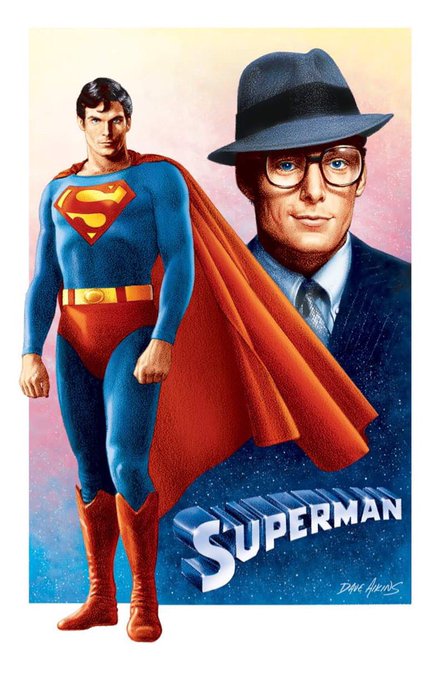
Eric Muller
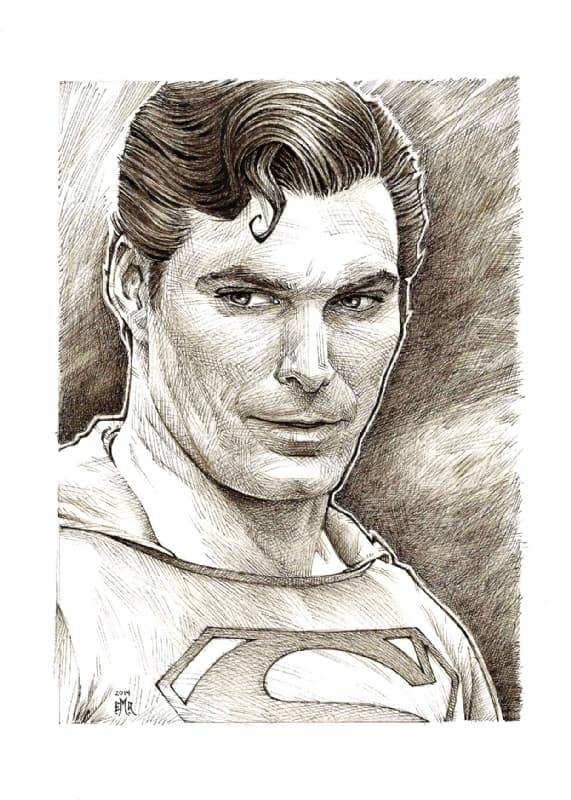
“Good Evening, Miss Lane” - My tribute to the iconic interview scene from the original Superman film inspired by the aesthetic of Disney legend Eyvind Earle. Considering most of Mr. Earle’s work is of nature with virtually no architecture, it was definitely a challenge extrapolating his design language from those beautiful landscapes into what could potentially be an animated Metropolis. Up, up and away !
2 « J'aime »

